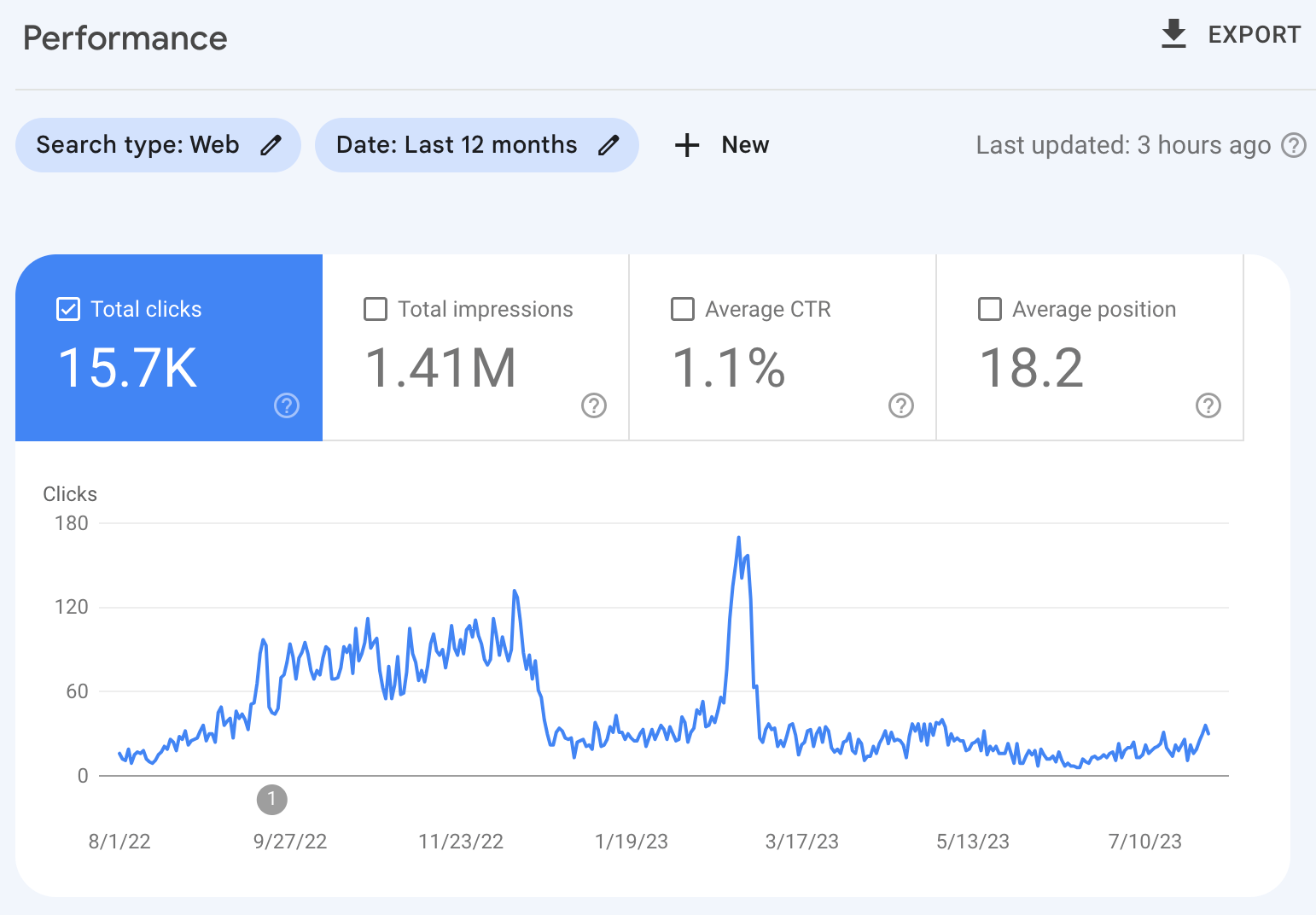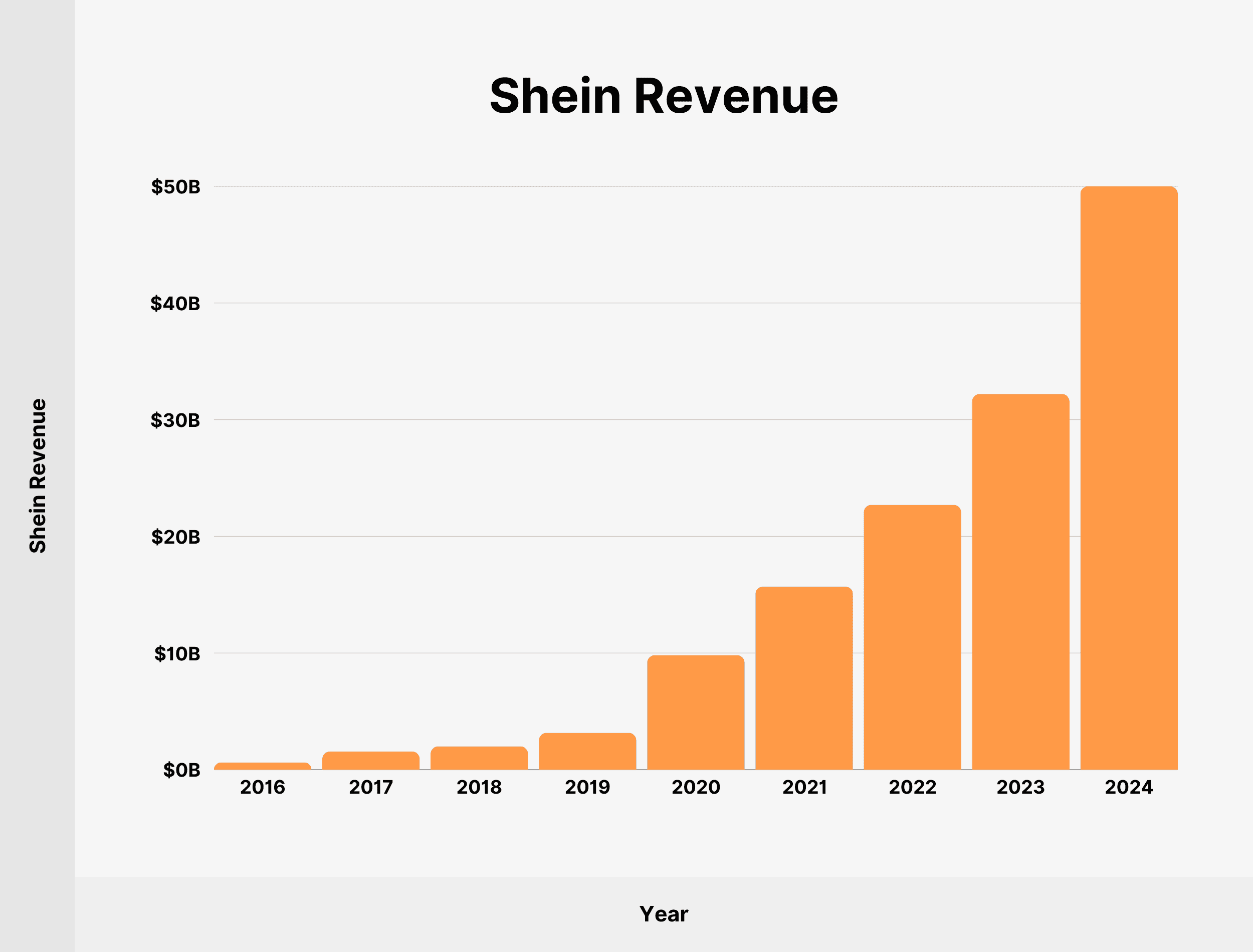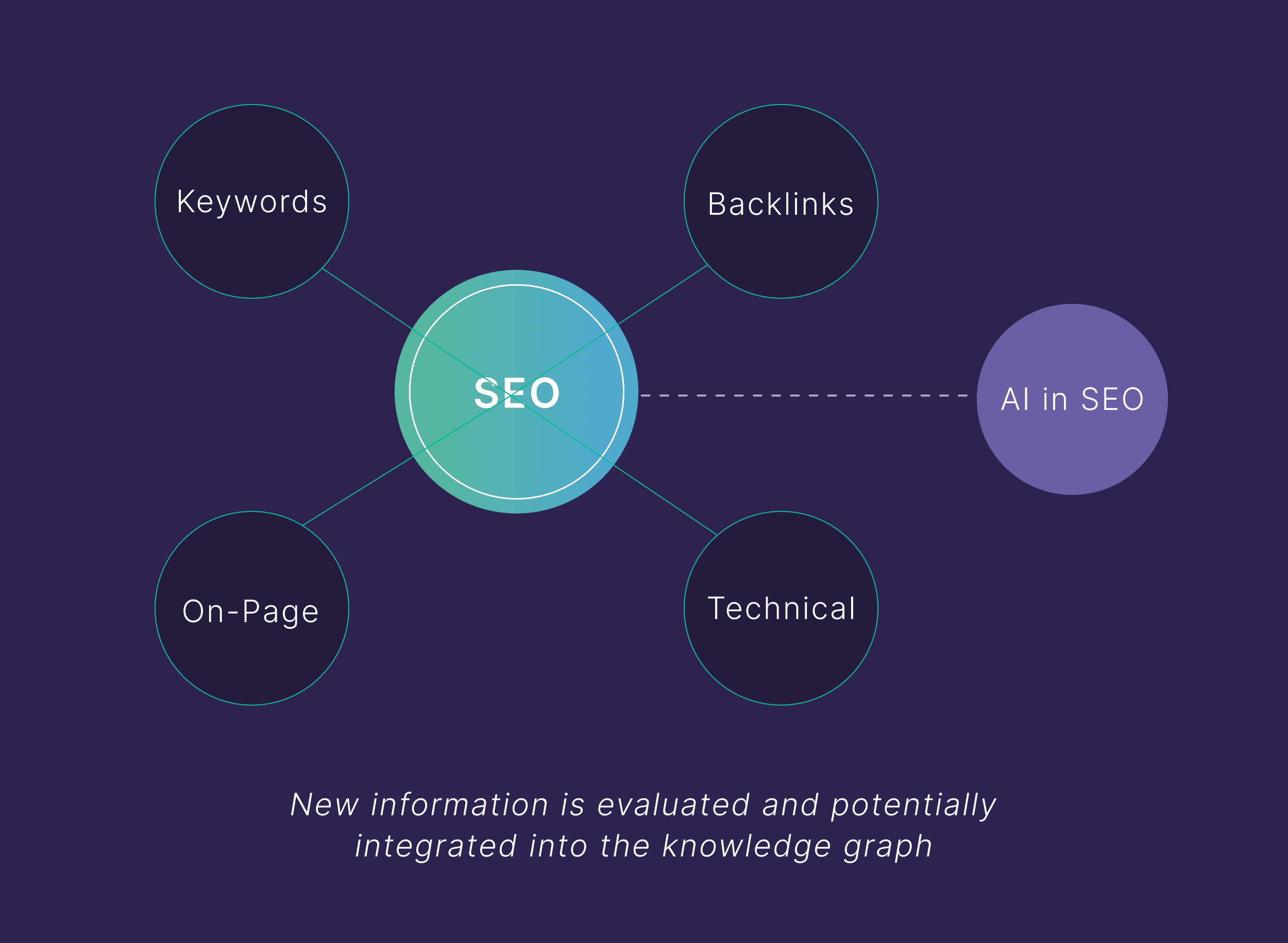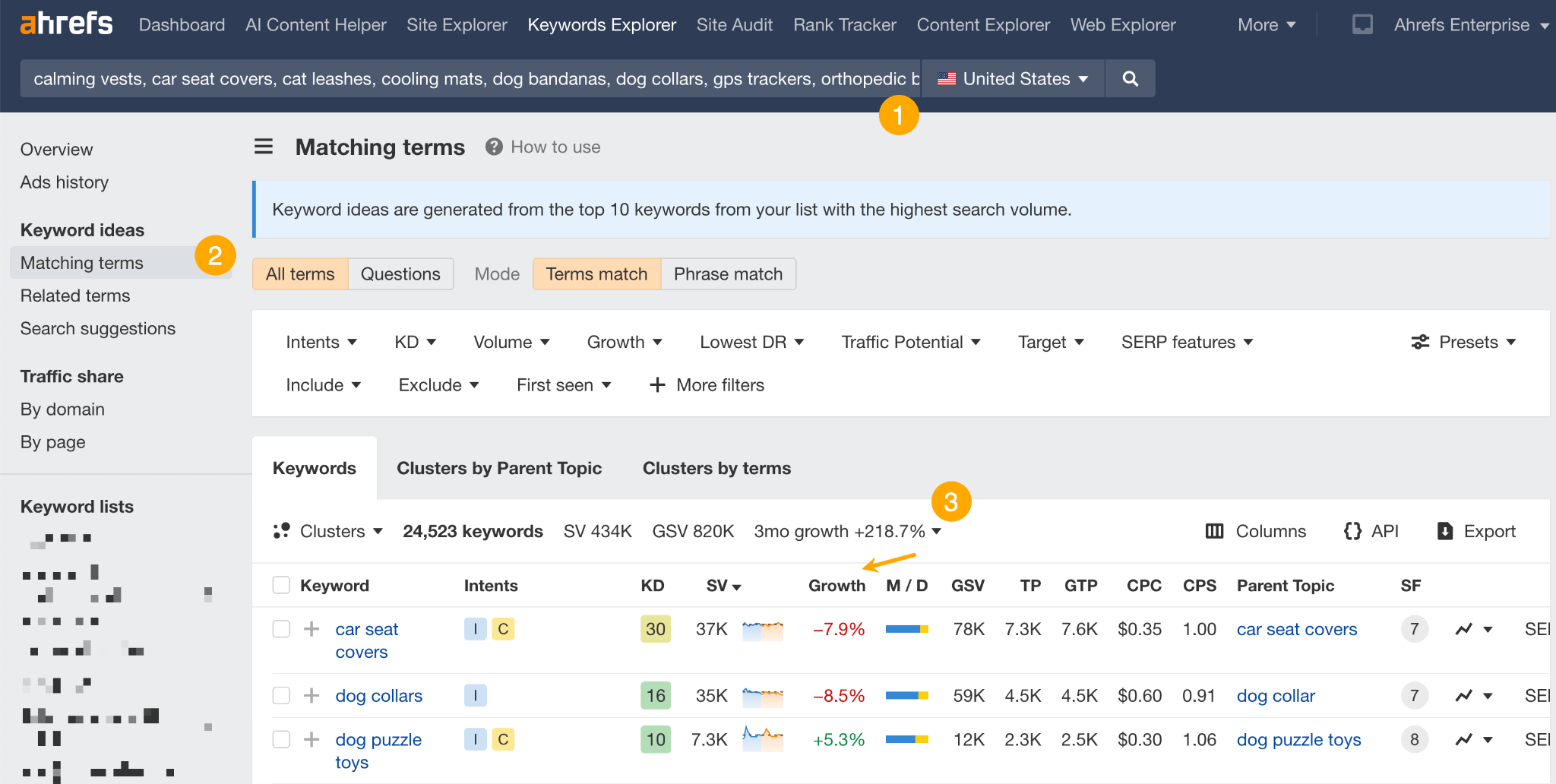An SEO consultant assists businesses in improving their websites’ visibility in search engines like Google.
In this post, I’ll walk you through what SEO consultants do, whether your business needs one, and the most important questions to ask before hiring them.
Seven questions to ask when hiring an SEO consultant
If you answered “yes” to any of the above questions, it’s likely you’ll need to hire an SEO consultant.
But with so many unscrupulous SEOs out there and so much money on the table, it’s important to vet potential SEO consultants thoroughly before you commit to working with them. This process often starts by asking the right questions.
Here’s what to ask your SEO consultant before hiring them:
1. How much do you charge?
It doesn’t matter how good an SEO consultant is. If they’re out of your budget range, you won’t be able to work with them—so it makes sense to ask this question first.
Here are the most common rates SEO consultants charge based on the results from our survey:
- Hourly: $101–$150
- Per project: $2,501–$10,000
- Retainer: $2,501–$5,000
Sidenote.
The pricing will also vary depending on the country. In the U.S. (and other countries with a high purchasing power parity), you should expect to pay at least $100 per hour to get a good SEO consultant. To hire the best English-speaking consultants, you can expect to be charged $200+ hourly rates.
Most SEO consultants (71.43%) charge monthly retainers, but a decent chunk of them (55.10%) offer per-project pricing too. Hourly payment is less common, but roughly a third of consultants (34.69%) still charge this way.
If your SEO consultant quotes way more or less than these numbers, ask about their experience.
Our survey found that the longer a consultant has been in business, the more they’re likely to charge (which makes sense):
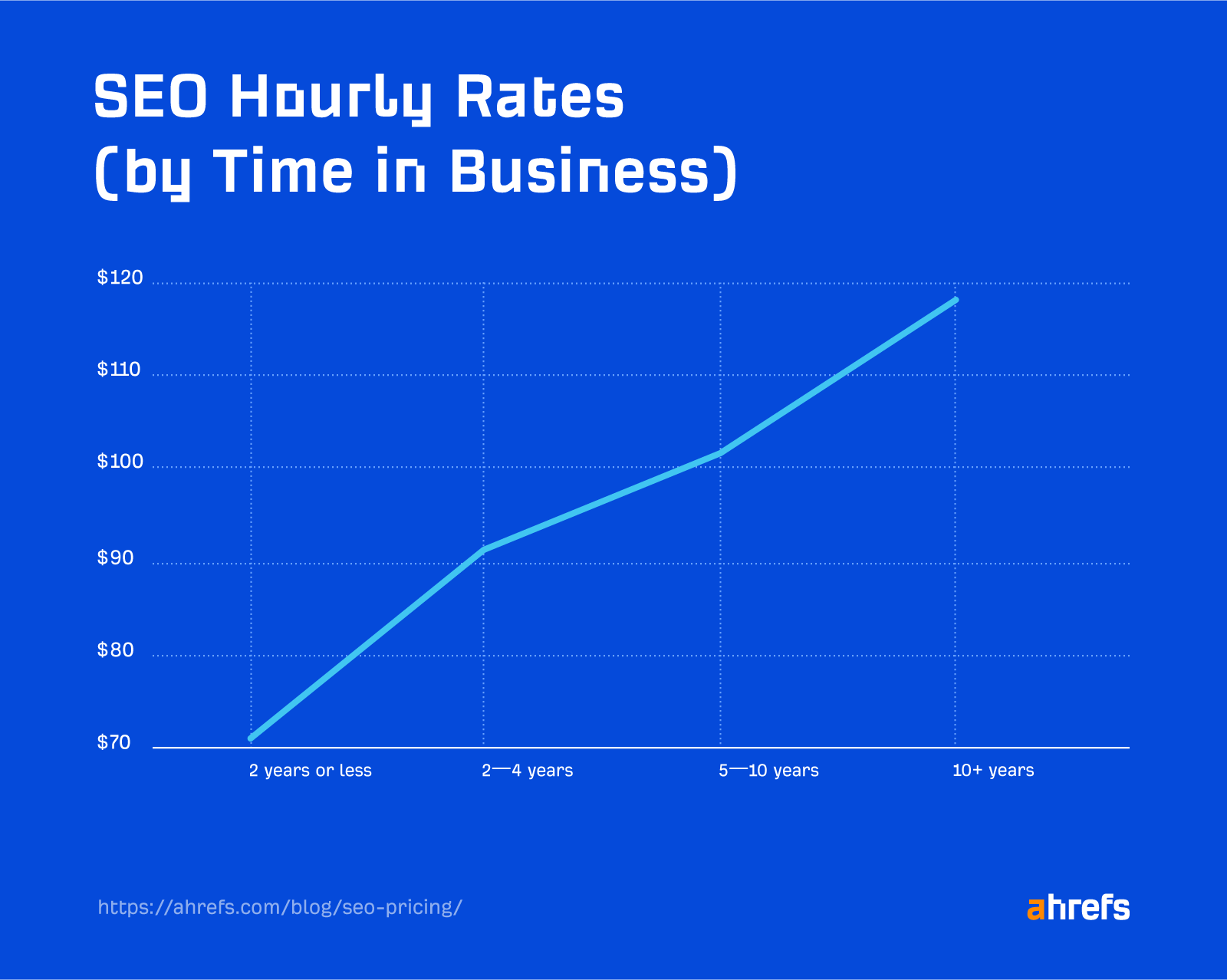
Further reading
2. What’s your specialization?
As SEO covers so many different industries, it’s almost impossible to be an expert in all of them.
That’s why it’s a good idea to ask an SEO consultant what industries they specialize in to understand where their strengths lie.
For example, an SEO consultant may have 10 years of e-commerce experience. This makes them a good candidate for an e-commerce business but not the best candidate for a SaaS business.
When looking for an SEO consultant, it makes sense to find one who already has experience in your industry or has worked with a similar business before.
3. What’s your track record?
Most SEO consultants list a few clients on their websites. But this information is not always accompanied by testimonials or case studies reflecting their SEO performance. If you’re missing this information, it’s worth asking them.
Another way to check is to use a tool like Ahrefs’ Site Explorer. You can plug in one of their client’s websites and check the estimated organic traffic in the chart.

From there, you’ll be able to see whether they did a good job or not.
If you see an upward trend, then it’s a good sign. But always discuss a few cases with the consultant when you get in touch with them. They can tell you the periods when they worked for a certain client.
Sometimes, you won’t see much growth or may question the performance in other ways. Let the consultant justify their results. SEO is a long-term game, and you rarely see any significant changes in organic traffic in the first months of cooperation.
4. Do you guarantee SEO results?
If an SEO consultant guarantees results, especially first-page rankings for your keywords—run.
No matter how good an SEO consultant is, they can’t “guarantee results” in SEO. There are too many variables and ranking factors involved.
The reality is that with Google’s algorithm updates, it’s hard for even the most experienced SEO consultants to predict exactly what’s around the corner in terms of SEO.
5. What SEO tools do you use?
Industry poll after industry poll reveals that most SEOs use Ahrefs, so you can expect most consultants to mention this tool.
Here’s a recent example:
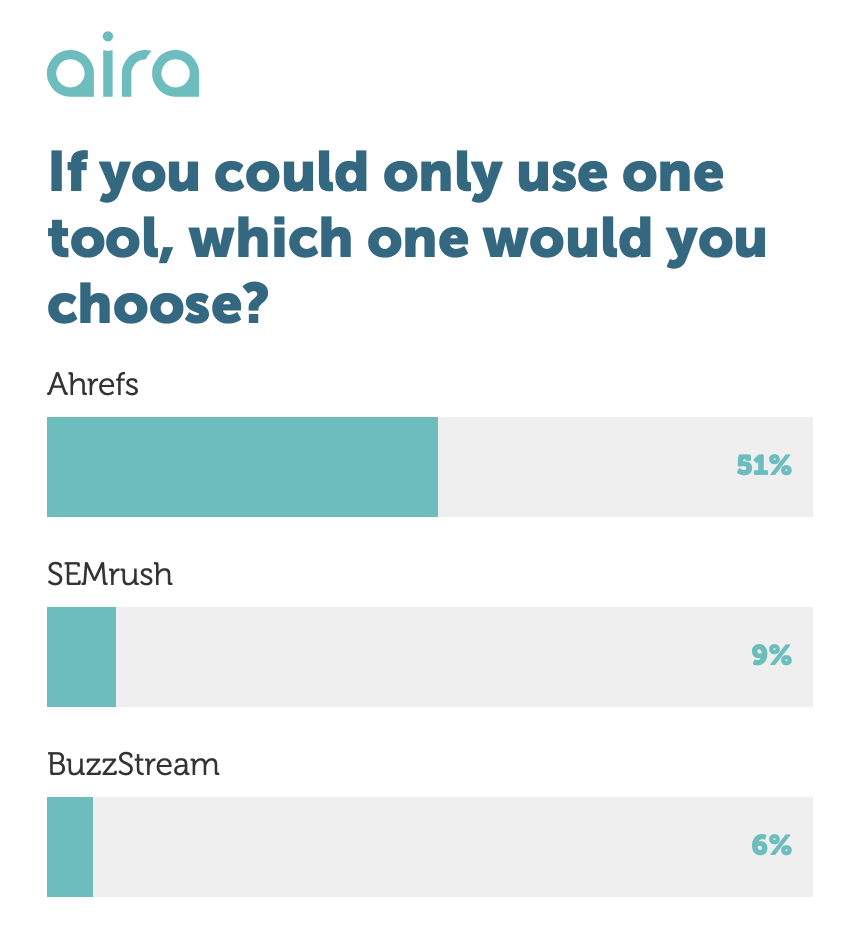
And another:

And one more…

But Ahrefs can’t do absolutely everything, so most consultants use other tools. Here are a few you can expect:
- Screaming Frog
- BuzzStream
- Pitchbox
- Google Search Console (GSC)
- Google Analytics (GA)
- Google Looker Studio (GLS)
- Surfer
- Hunter
If a consultant doesn’t mention some of these tools, it could be a red flag. As SEO is focused on tools, you should expect your SEO consultant to understand most of the tools mentioned.
6. What’s your approach to Google’s guidelines?
There’s no right answer to this question.
But leaning toward the extremes (doing everything/nothing according to Google) should be treated with caution.
Many SEO consultants have had great success reading between the lines of Google’s guidelines and have got astonishing results. Still, the sustainability of these methods is usually short-term and not ideal for a business owner looking to grow their business for the long term.
Breaking Google’s guidelines also comes with a great deal of risk. At best, it could be an algorithmic penalty. At worst, it could result in a manual penalty—usually spelling the end of a website.
The path you take here depends on your risk appetite. But my advice in most cases is to go with an SEO consultant who doesn’t try to break Google’s guidelines.
7. What do you need to get started?
When you ask the SEO consultant this question, the response you’re looking for is for them to ask if there’s been any previous SEO work done on your site.
The reason for this is it’s a good indication of whether they’re willing to charge you again for work that might have been done already.
Here are some questions that they may ask you:
- Has any keyword research been done?
- Is there a content plan?
- Has an SEO audit been completed?
- Have you done any link building?
- Are there any SEO reports?
Another thing that most SEO consultants may ask for is access to Google Analytics and Google Search Console.
These are industry-standard tools, and it’s helpful for the SEO consultant if they can see the state of the website (usually before working on it).
If an SEO consultant shows an interest in the work that’s been completed on the website, it’s probably a good sign that they’re efficient, thorough, and prepared to do a good job.
Final thoughts
Finding a decent SEO consultant to improve your website’s organic visibility is not always easy. You may have to work with several before you find a good fit for your business.
Often, the best way to find a decent SEO consultant is to connect with them on LinkedIn or go with a personal recommendation from another website owner.
Content Copyrights Belong to The Author. All Rights Reserved.
We're A Dallas Digital Marketing Agency That is Experts At Social Media Marketing, Website Design and Emarketing and Promotion.

